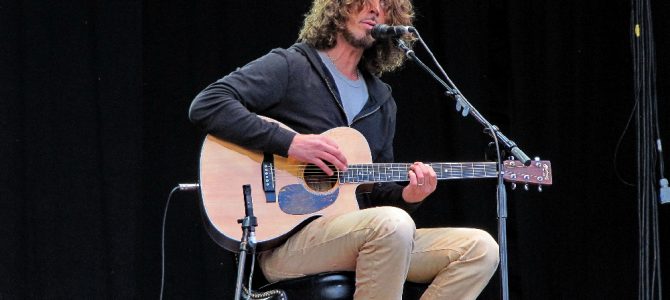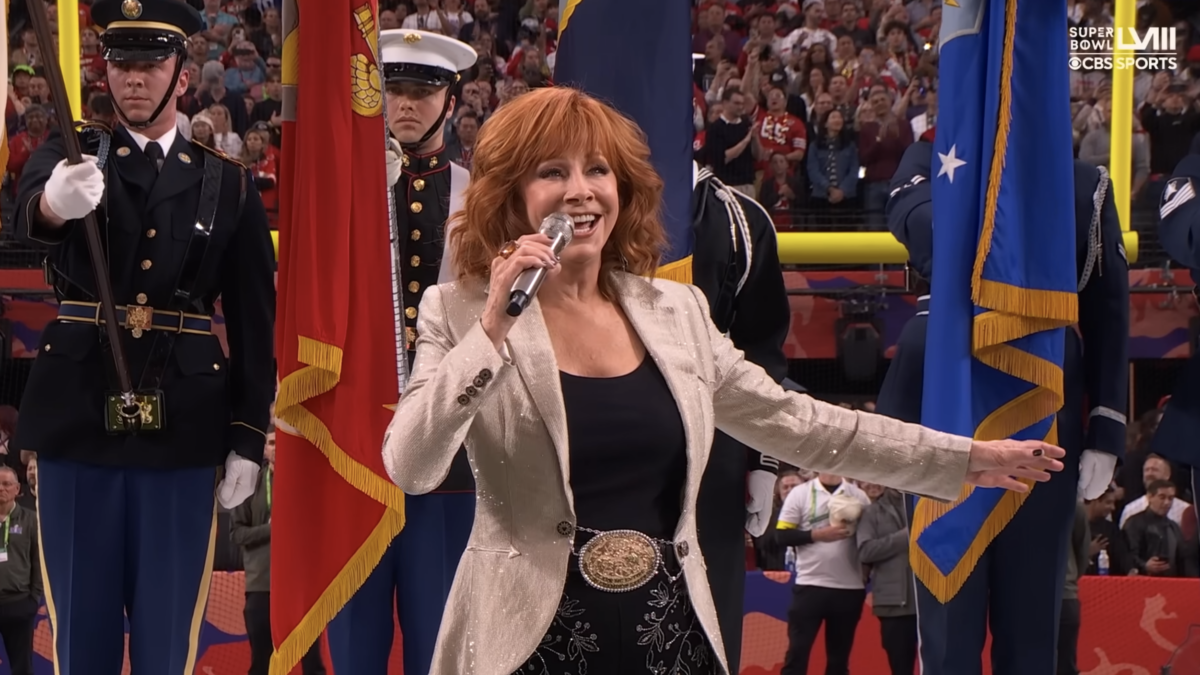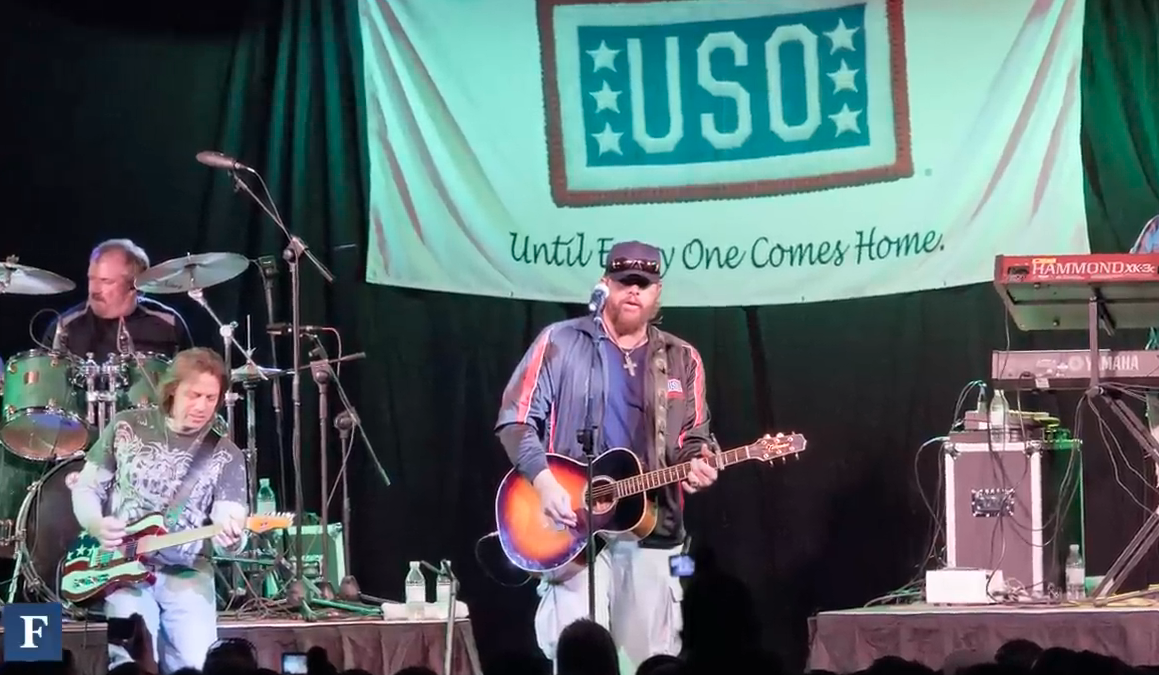
Musician Chris Cornell was found dead on May 17 in Detroit; he was 52 years old. The night of his death, he had performed with Soundgarden at the Fox Theatre.
Soundgarden | 5.17.17 pic.twitter.com/uBC6rSXWg6
— Fox Theatre (@FoxTheatreDet) May 18, 2017
Cornell leaves behind an incredible body of work and a legacy contemporary artists will find hard to match. He fronted three bands—Soundgarden, Temple of the Dog, and Audioslave—and produced four solo albums and a few live albums between them all.
His music enjoyed frequent use in Michael Mann movies, usually at pivotal moments. See, for example, “Collateral” and “Miami Vice.” He also stands among the few artists to have contributed a theme song, “You Know My Name,” to a Bond movie. He recently completed a tour with a briefly re-formed Temple of the Dog before embarking on what would become Soundgarden’s final tour. His last album, “Higher Truth,” was released in 2015.
Cornell struggled with addiction to both drugs and alcohol, and went into rehab in 2003. He remained sober since that time, usually making a note of it at shows.
He leaves behind his wife Vicky and two children, Toni and Christopher Nicholas, as well as his first wife, Susan, and their daughter Lillian Jean. Those are the facts of it. Now for some memories.
Soundgarden Was Our Band
My cousin decided early for me that Soundgarden was the band from the grunge era worth listening to. By 1996, they were done recording, and by 1997 they’d disbanded. If his copies of “Down on the Upside” and “Superunknown” were cassettes instead of CDs, they would have been worn out and warbled. Instead, the jewel cases were cracked and those little teeth that held the CD in place were broken and would rattle around the inside. Occasionally “Black Hole Sun” would worm its way onto Q1043, New York City’s classic rock station, while we were in the car with my dad. It was cool finally having our band, even though they’d already broken up.
Even without a band, Cornell was always producing something. In 1999, he released “Euphoria Mourning.” It’s a dark album, and while most of its themes can be found throughout the Soundgarden albums, here they’re presented without the hard rock backing. While it’s still a rock album, it’s interspersed with a few ballads that show a different side to Cornell.
There is the beautiful song “When I’m Down.” (That link leads to a performance of it from a concert my cousin and I went to for his birthday.) There’s “Preaching the End of the World,” a twist on the traditional love song. The track “Mission” was used in the “Mission: Impossible II” soundtrack, and “Sunshower,” a bonus track from the album, ended up in “Great Expectations.” Then there is “Seasons,” written for and used in “Singles.” In each case, the music has outlasted the movie.
Then We Got to See Chris Cornell Live
In 2002, Audioslave burst onto the music scene with their self-titled debut, which brought the two sounds together. Cornell got to stretch his vocals more than he had in Soundgarden, but was back to having some thunder behind him. “Out of Exile” and “Revelations” followed in 2005 and 2006, respectively. Neither my cousin nor I got the chance to see Audioslave live, though my cousin bought me their “Live in Cuba” DVD for Christmas the year it came out.
By the time “Carry On” came out in 2007—Cornell’s first solo work since “Euphoria Mourning”— between the two of us we had the disposable income, the driver’s licenses, and the cars necessary to actually go to a show. We saw him play at the Starland Ballroom out in Sayerville, New Jersey. The building could have been a used car dealership, and resides out in the middle of a massive gravel parking lot. We had bought two tickets, but a week before the show my cousin won a pair on the radio that came with a meet and greet afterwards. We used those tickets and passed our pair to a guy and his kid.
The show was amazing (thanks to the Internet here’s the setlist and Cochise from that night). He played songs from every period of his career. During an acoustic set in the middle he threw out a Jersey special cover of “Atlantic City.” After the show we got to shake hands and get a signed photo. We muttered out a “Thank you, that was amazing, we’re huge fans.” I’d like to say we definitely didn’t look like dumb kids while getting to interact with him, except we totally did.
‘Like Seeing a Dream Realized’
“Scream,” produced by Timbaland, came out in 2009. It saw a pop electronic take on Cornell, probably more interesting in theory than it was in practice. I always liked the album more than most did even if it is the weakest in his discography. My cousin and I caught him at the Wellmont in Montclair during that tour. The songs he played from the album during the show were all arranged more traditionally and excellent. (Here’s the setlist for reference.)
When the news of Cornell’s death broke Wednesday, I texted my cousin. In those exchanges, my cousin insisted that Cornell had touched his hand during a show. Cornell mostly shied away from the songs from “Scream” on later tours, even going so far as to rename the “Two Drink Minimum” to “As Hope and Promise Fade.” Regardless of name, it’s an amazing song.
He did play “Scream” when we saw him in 2011 at the Wellmont, but that was the only other track that survived. He then released “Songbook,” an album which compiled tracks from the tour. It remains his only live album from his solo tours.
After that tour, Soundgarden got back together. I had moved down to DC while my cousin was in New Jersey, so while he was able to see them, I couldn’t make the show. In describing it, my cousin said, “It was like seeing a dream realized ‘cause they had been split for so long.”
Cornell’s last solo album, “Higher Truth,” was released in 2015, with a tour announced shortly thereafter. My cousin and I got tickets for his State Theatre show in New Brunswick, which consisted of this amazing setlist. “Rusty Cage” was particularly awesome, and Cornell was excellent.
“Higher Truth” saw a somewhat happier turn for his songwriting, or at least a more contented man. Songs like “Let Your Eyes Wander,” “Through the Window,” and “Josephine” are softer. They flip the broken love song that is “Preaching the End of the World.” The album’s sound is much more akin to Cornell’s solo acoustic shows, and it shows off his voice and writing skills.
And Then Seeing a Dream Dashed
Last year, Cornell got Temple of the Dog back together for a reunion tour. My cousin had joined the reserves and was deployed to Jordan at the time, so I went and sent him crappy cell phone videos of it. It wasn’t quite the same, but we got to see them together on a four-inch screen. When Soundgarden announced this current tour, we figured we’d finally get to see them together. Now, we never will.
Before today, I never really understood when people got truly upset about an artist dying. I was saddened about Glenn Frey, Prince, Bowie, Clarence Clemons, and Danny Federici, but I’d never seen the first three live. For the latter two, even though I’ve seen Bruce Springsteen about 18 times, I only saw one show with Danny. At this point, I’m almost even at shows with and without Clarence. But neither Danny or Clarence were the guy; their deaths were sad, but Bruce would still tour. The show would go on.
Chris Cornell is the guy, he is the band. Not only that, he’s one of the things my cousin and I agree upon, someone that we can get tickets to, go see, and have a great time. His music is just niche enough that when you run into other fans there’s something that binds you. He’s had so many different careers and iterations that people picked him up at different places, there are layers of fans.
So now I get why people take it personally. Cornell’s death hits home for me because his music was our music. Thanks for the music and the memories, Chris. Thank you for keeping two cousins friends. We’ll miss you.









